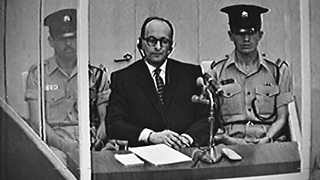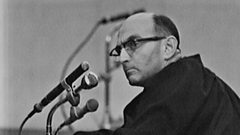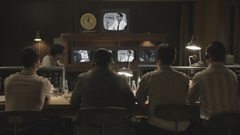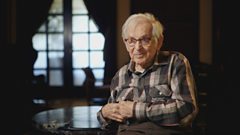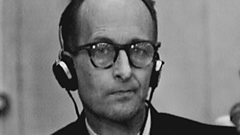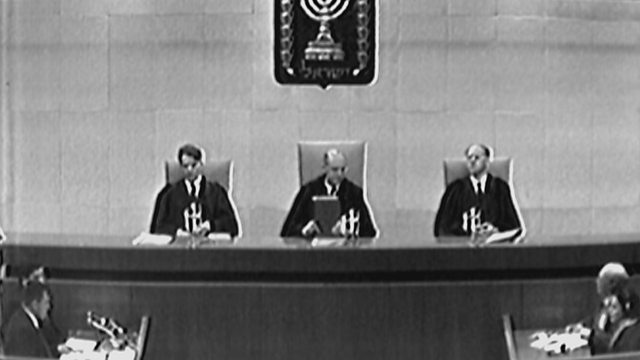
The Eichmann Trial and the State of Israel
How Adolf Eichmann's trial raised the profile of the State of Israel.
The trial of Adolf Eichmann characterised the growing confidence and fledgling adolescence of the State of Israel that was in 1961 only 13 years old. Gabriel Bach, deputy prosecutor, recalls seeing 3 judges stride into the courtroom with the emblem of the State of Israel behind them about to judge a man in a glass bullet-proof box, Adolf Eichmann, who wanted to wipe out the existence of Jews and Israel. We see Gideon Hausener, the chief prosecutor, present the opening statement on behalf of the State of Israel, for with his team had taken six months to select 112 survivors with the maximum impact which by design had been devised to shape public opinion and raise the profile of the Jewish experience of the Holocaust. For many Israeli's this was their first introduction to details of the Holocaust itself. βWhat had been silent and repressed became common knowledge.β Professor Cesarani explains that this was a very powerful moment where two Adolfs were seen as responsible for the Holocaust β Adolf Hitler and Adolf Eichmann. Over 80,000 Israelis witnessed the testimonies that shocked the world that were recorded on 1000 miles of video tape, watched in 56 countries and where it is claimed by the producer, Milton Fruchtman, that 80% of German population saw 30-60mins of the trial β sharpening global understanding of the Holocaust at this time. At the heart of the testimonies was the harrowing story of Auschwitz-Birkenau. Gabriel Bach recalls the story of 200 children marched into the gas chamber at Auschwitz who calmed themselves by singing and then realising their peril they began to shout and to cry. At that same moment a truck arrived laden with potatoes and was too much for the SS men to empty so, hearing the cries, opened up the gas chamber, took out 20 children and gassed the rest. Professor Cesarani discusses the people who worked at Auschwitz and the processing of Jews to their death at Auschwitz which included humiliation and psychological torture before death. The clip reveals how Eichmann also tried to influence public opinion by his manner and appearance in court. Professor Cesarani discusses how Eichmann sought to present himself as a soldier, a warrior and an honourable man doing a difficult but important job and very much not the monster that the evidence of the Holocaust presented. This was a high risk strategy, for any failure in his defence would bring his execution.
Duration:
This clip is from
More clips from The Eichmann Show Documentary
-
![]()
How far can one person be held responsible for the Holocaust?
Duration: 06:06
-
![]()
Managing evidence and recording the trial of Adolf Eichmann
Duration: 05:30
-
![]()
Who was Adolf Eichmann?
Duration: 05:53
